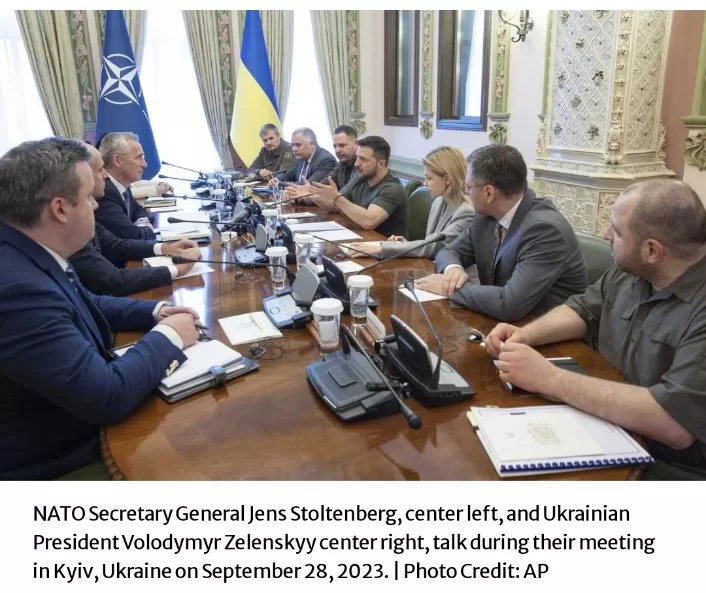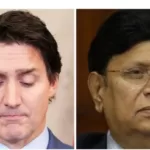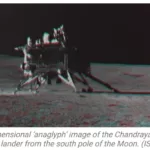Kyiv – In a critical meeting held on September 28, 2023, NATO Secretary-General Jens Stoltenberg convened with Ukrainian President Volodymyr Zelenskyy to discuss the ongoing conflict and the urgent requirements of Ukrainian forces. This gathering followed Russia’s accusations of Western allies’ involvement in last week’s missile strike on the Black Sea Fleet’s headquarters in Crimea.
President Zelenskyy underscored the pressing need for additional air defense systems to safeguard Ukraine’s power infrastructure, severely damaged during previous Russian attacks. He also highlighted the relentless drone, missile, and artillery assaults on civilian areas, which recently claimed the lives of at least three civilians.
Stoltenberg unveiled NATO’s commitment, stating that the alliance has secured contracts worth 2.4 billion euros ($2.5 billion) for ammunition, including anti-tank guided missiles and artillery shells, to bolster Ukraine’s defenses.
“The stronger Ukraine becomes, the closer we come to ending Russia’s aggression,” Stoltenberg affirmed, emphasizing that peace hinges on Russia’s withdrawal, not Ukraine’s surrender. He reiterated NATO’s unwavering support for Ukraine’s aspiration to join the trans-Atlantic military alliance.
Russia perceives Ukraine’s NATO membership as a grave threat, one of the underlying causes of its invasion. Recent claims from Russia alleged that U.S. and U.K. security agencies, along with NATO satellites and reconnaissance planes, had orchestrated the attack on the Black Sea Fleet headquarters in Crimea.
Ukraine reported casualties among its officers in the attack and suggested the use of Storm Shadow missiles provided by the U.K. and France, although these claims remain unconfirmed.
Notably, the meeting with Stoltenberg coincided with France’s defense minister’s visit to Ukraine, exploring avenues for sustaining military support. The U.K. defense secretary also reaffirmed unwavering British support, including the provision of additional ammunition.
Ukraine is actively formulating a plan to align with NATO’s principles and standards, with President Zelenskyy stressing that Ukraine does not require an immediate NATO membership action plan.
At NATO’s recent annual summit, member states pledged increased support for Ukraine but stopped short of extending a formal invitation to join the alliance. The alliance remains committed to facilitating Ukraine’s membership once conditions are met and the conflict with Russia is resolved.
Regarding recent drone findings near the Romanian-Ukrainian border, Secretary-General Stoltenberg expressed concerns about Moscow’s actions near NATO’s eastern borders, prompting an increase in troop presence and surveillance.
While these diplomatic efforts unfold, authorities in Moldova investigate the origin of a “crashed rocket” found near the Ukrainian border, underscoring the regional implications of the ongoing conflict.
In the face of escalating tensions and the persistent threat of Russian aggression, the international community watches closely as Ukraine and its allies navigate a complex geopolitical landscape.
By AFP







